When the new Legal Aid Law is about to take effect, CCTV Society and Law Channel comes to the Legal Aid Center of Wuhan University for a special interview, filming about the center’s history, legal aid service condition, recipients’ experiences, and the impact and changes of the new law’s implementation, etc.
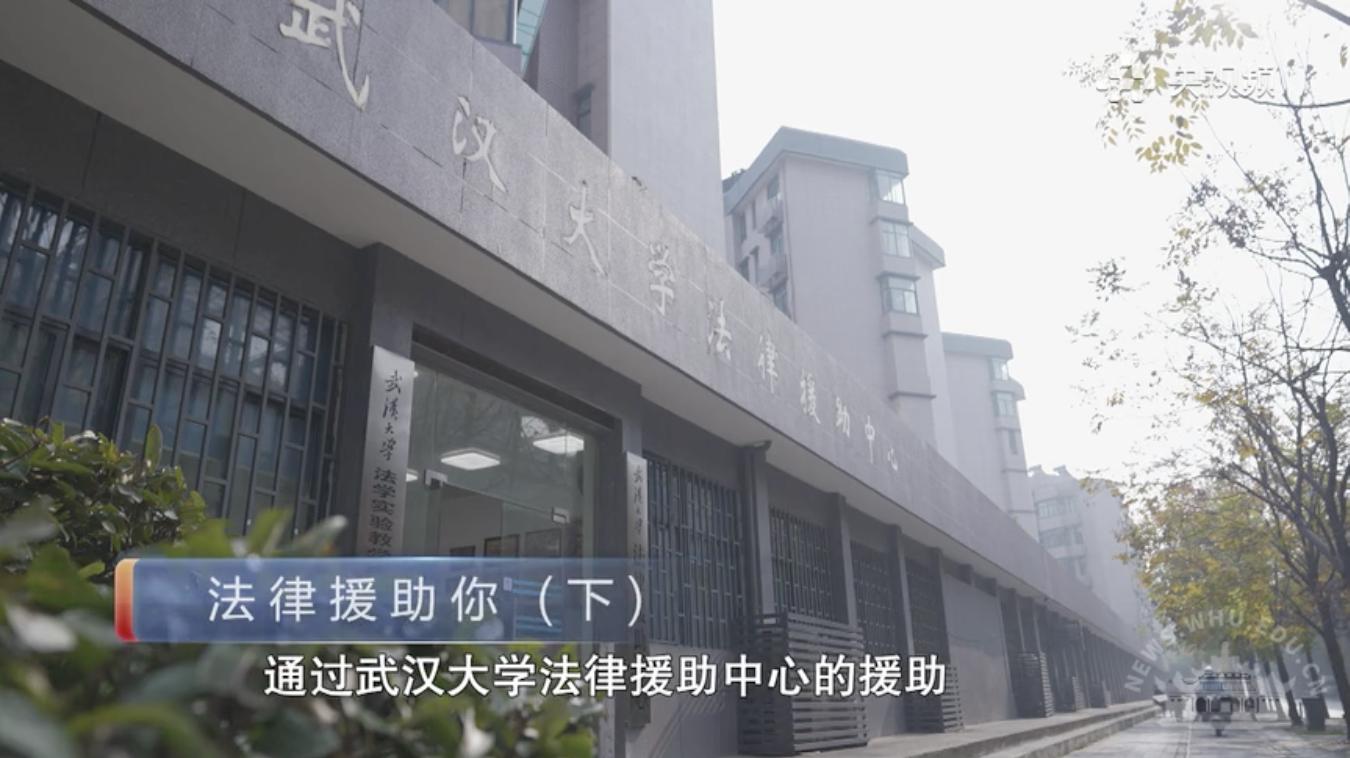
The program is introduced by the "Delivery Guy’s Sudden Death Case", which is represented by the Legal Aid Centre as two volunteers, namely Wang Meng and Yang Qian of the center are dispatched to represent the case. It is about a takeaway delivery man who suddenly falls to the ground and loses consciousness during the delivery of food, and is confirmed dead on the way to the hospital. The dispute in this case is whether there is a labor relationship between the delivery guy and his company, and whether the death in this situation constitutes an occupational death. Having combed through the case and focused on the legal dispute, the two volunteers finally assist the delivery man’s wife to reach a settlement agreement with the company and get compensation of 830,000 yuan by consulting relevant legal provisions, collecting judgments of similar cases, and negotiating.
With the rise and development of the takeaway industry, disputes between takeaway delivery men and delivery companies also take place frequently. The proper handling of the case provides a positive rights protection guidance for the underprivileged takeaway delivery men, and also sounds the alarm for the standardized management of food delivery companies, resulting in positive social benefits.
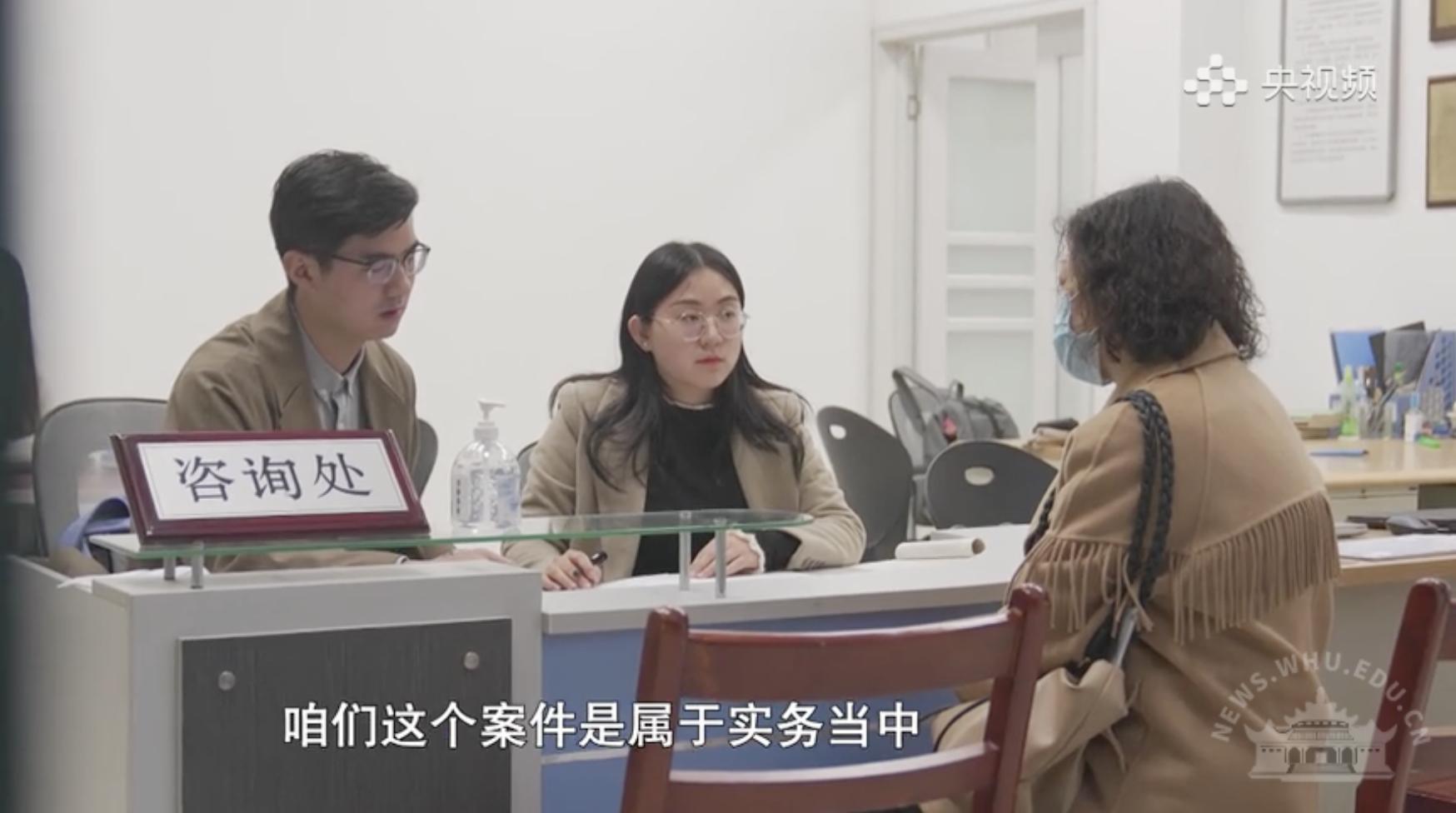
Another typical case covered by the program is a personal injury compensation case represented by a volunteer at the center whose name is Tan Zuocai. A greengrocer asks Mr Zhang to repair a refrigerator. Since Mr Zhang is not really good at it, he invites Mr Wu, his fellow-townsman and a professional plumber to go together. When Mr. Zhang is entrusted by Mr. Wu to check the circuit on the second floor, he accidentally steps on an unsettled gypsum board and falls to the first floor, and then was identified as level 10 disability. However, both the greengrocer and Mr. Wu are unwilling to take responsibility. The difficulty of this case lies in the confirmation of legal relationship and the determination of the compensation share. After many times of field visits, communication with the parties and clarification of their appeals, Tan Zuocai eventually safeguards Mr. Zhang's legitimate rights and interests through litigation that the three parties should bear the medical expenses and other expenses in a certain proportion. The case lasts four years, with volunteers meeting with the parties more than a dozen times and communicating with them countlessly online. The volunteers of the center, who adhere to the original intention of upholding justice and helping the weak and practice the mission of shouldering social responsibility, have won a good reputation for the Legal Aid Center of Wuhan University from all walks of life.
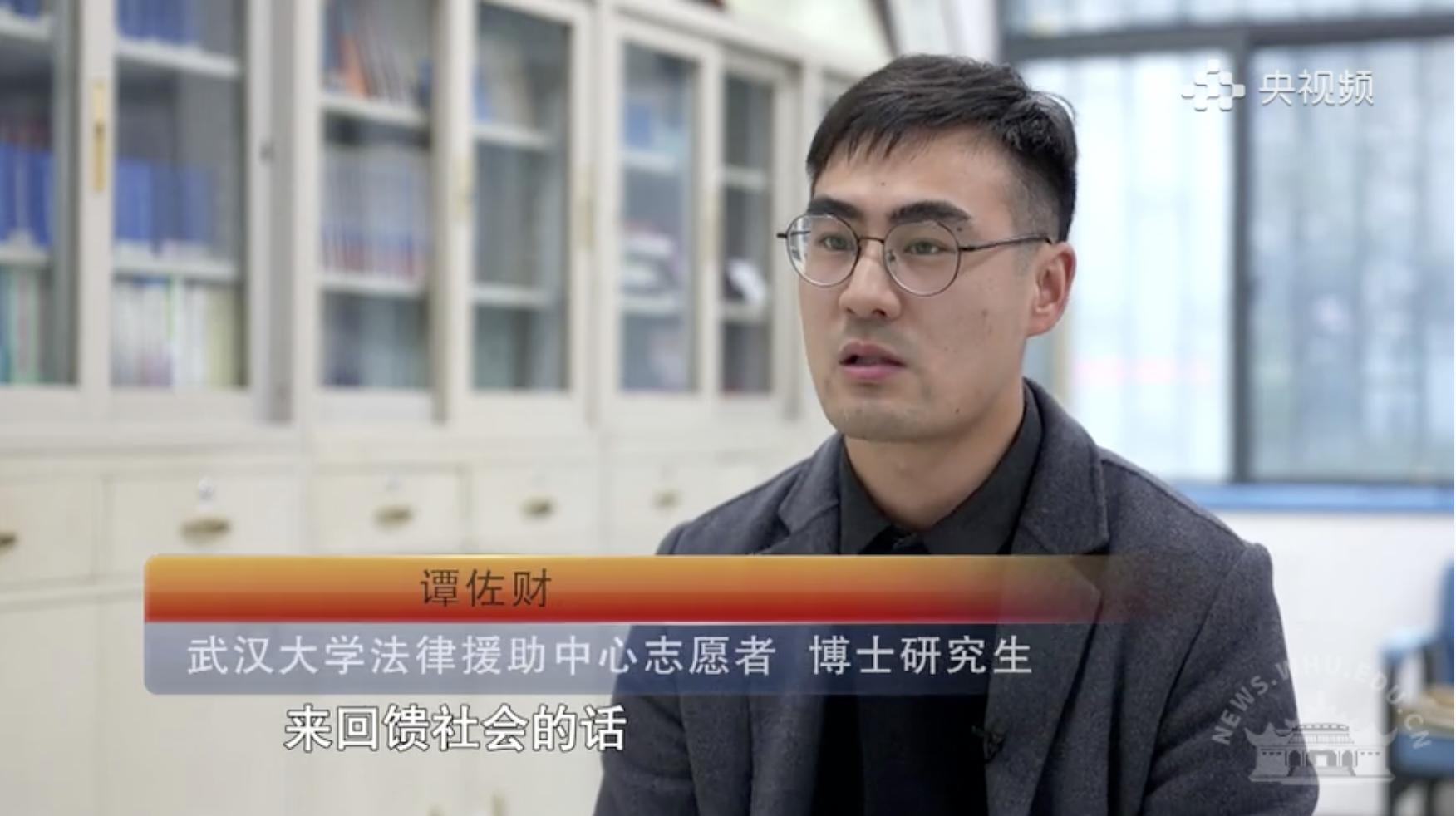
Director Xiang Yan, who introduces the establishment background and development history of the center, points out that in the information age, ordinary people's demands for the protection of rights and interests have greatly increased, and the center should also take advantage of the trend and increase supply to help the legal aid work be carried out.

The Legal Aid Center of Wuhan University is a campus practice base for teachers and students of School of Law, Wuhan University to serve as volunteers, and is also a "social force" stipulated in Article 17 of the Legal Aid Law. Since its establishment in 1992, the center has carried out its work with the aim of " providing the best quality services to those who need help most with the best legal talents " and has a complete set of case acceptance procedures.
Legal Aid Center of Wuhan University is the leader of legal aid in universities. Over the past 30 years, the center has made every effort to provide legal and reasonable solutions for every person who seeks help, and strive to resolve social conflicts and maintain legal justice. The center always abides by the promise of "three most" and provides legal services for the socially disadvantaged throughout the country. With the help of volunteers, many women, minors, the disabled, the elderly and laborers whose rights and interests have been infringed and can’t be protected by law get justice in accordance with the law and get out of the predicament of despair and helplessness. The volunteers of the center actively perform their duties, feed their practice with what they have learned, exercise their legal literacy and professional ability in specific cases, and grow together with the center. The pennants and medals on the center wall are affirmation of everyone's work.
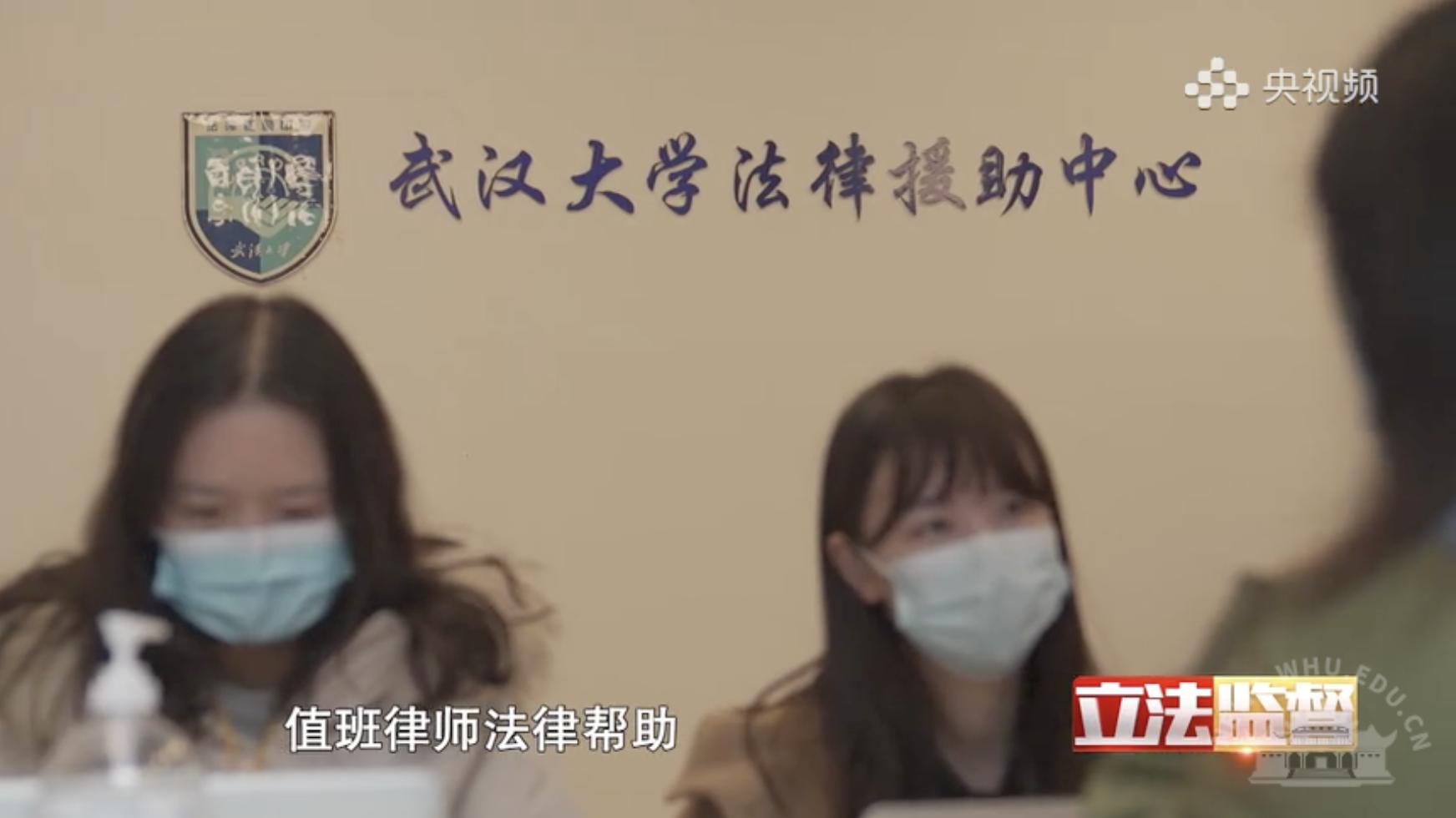
When the Legal Aid Law is enacted, director of the Legislative Affairs Commission of the National People's Congress, Guo Linmao said, the law of legal aid, hope to get more qualified strength, there are more ways to participate in legal aid in a wider scope, at the same time also hope that legal aid workers have greater motivation to carry out legal assistance work. Hu Zhanshan, director of the Legal aid Center of the Ministry of Justice, said that the Legal aid Law clearly stipulates that various social forces should be widely mobilized, especially social groups, teaching staff with professional legal knowledge, and college students to participate in the legal aid work.
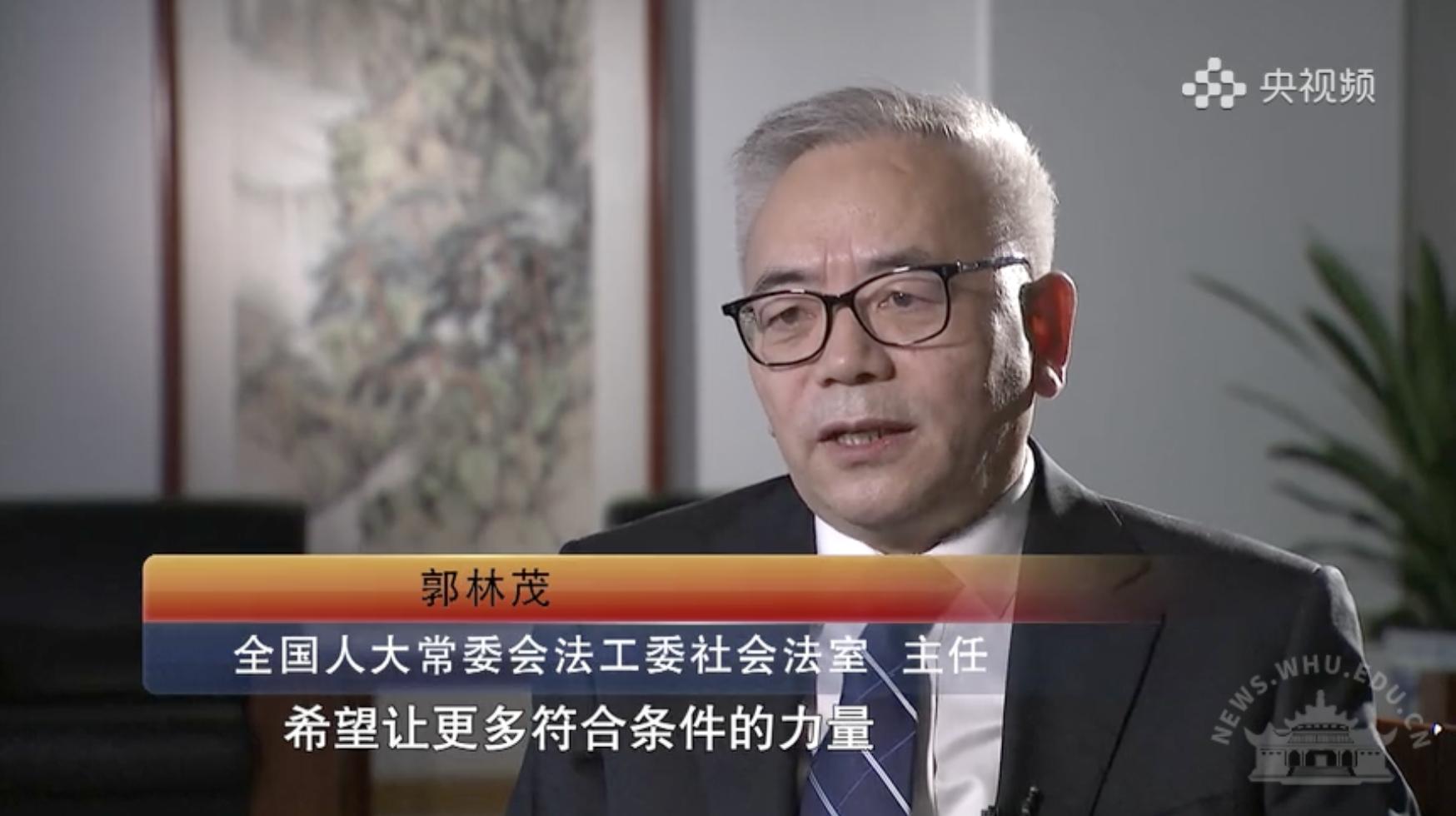
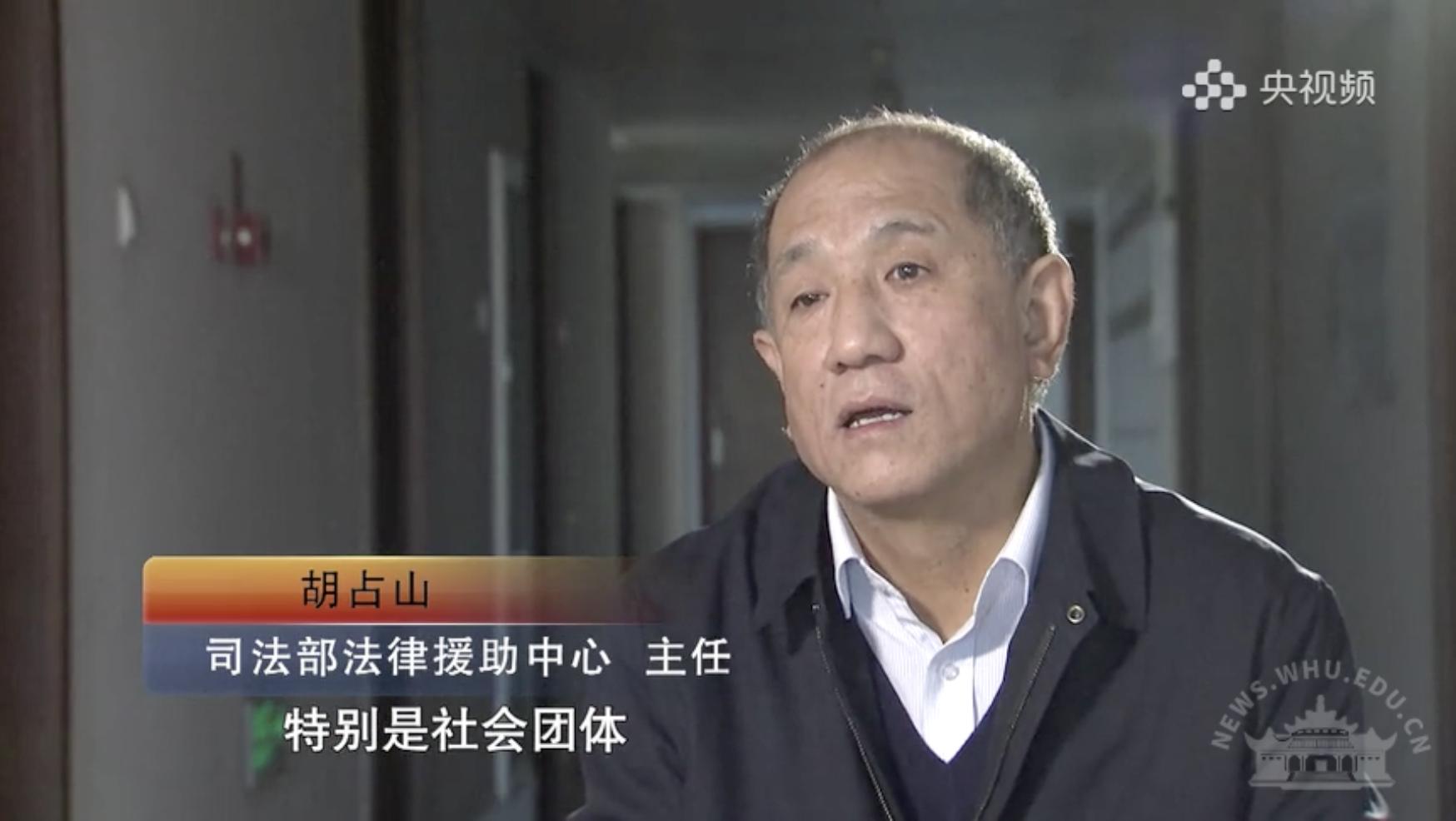
Legal aid is faced with such problems as low funding, low subsidy standard and insufficient social support. In this regard, the Legal Aid Law clearly stipulates that legal aid funds shall be included in the government budget at the corresponding level, legal aid subsidies shall be dynamically adjusted, and individual income tax and value-added tax shall be exempted from legal aid subsidies. In addition, the central special lottery fund and social donations are also funding sources for legal aid activities. In the future, it is expected that more volunteers will participate in the legal aid work and help the smooth implementation of the Legal Aid Law with their professional skills and lofty social responsibility.
Rewritten by: Liang Keke
Edited by: Wang Xuanqi and Hu Sijia